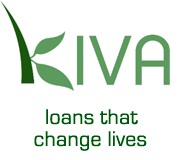While I was in Youngstown last month I discovered—completely by accident—an incredible documentary called RiP! A Remix Manifesto by Brett Gaylor. It was the joy of my Saturday night. Watching it heralded a revived obsession with Cory Doctorow’s Content, a book I began to dog-ear and mark up as if studying the new bible. I started That Idea Blueprint Girl knowing there was information I needed about copyright. Apparently, it wasn’t going to take me too long to find it.
My hunch has always been that ideas are free—or should be. Brett Gaylor’s documentary explains a lot about how free ideas allow new generations to build on the culture of previous ones. Without the free ideas, everyone who innovates and makes better is a criminal, because they’re all infringing on someone’s copyright. That’s the world we’re living in right now. Ever feel odd that everything from the public domain is trillions of years old? This is why.
I think my urge here has been that even when ideas aren’t free—even when people try to restrict them with laws and fines and general pissiness—they still essentially are free. If someone patents the ground under your feet, you can still stand on it until someone drags you away. A plant used by hundreds or thousands of years to cure disease in some foreign culture might get patented by an enterprising American capitalist, but that doesn’t mean that its foreign practitioners can’t still use it (at least until that same capitalist, in a fit of righteousness greed, figures out how to take the plant away from the practitioners, or the practitioners away from the plant.) And a Doctorow quote from a recent Boing Boing post: A law that no one understands and no one abides by is no law at all.
You can’t really restrict ideas. You can pretend to do it, but it doesn’t really work. You can enforce it unnaturally, but someone else can always have the same idea and the returns on this kind of enforcement are always going to be limited. Someone else can always alter your idea just enough to make it theirs. Our attempts at proving otherwise are a sham. Ideas are free. They were free before civilization and commerce, and they’re free now. We’re just fooling ourselves.
The question, I think, is this: How long are we going to try and enforce an anti-cultural paradigm that absolutely does not function?
Originally, we didn’t have a lot of argument over whether ideas were free. Copyright was created when one day, ideas were suddenly easier to spread—and it gave creators a way to benefit from their creations. Authors had the exclusive rights to their work for 14 years, and then the rights passed to the public domain. Compared to our current system, this seems overwhelmingly reasonable. In this scenario, an artist—any innovator—continues to come up with new ideas and new ways to implement them in order to survive.
But ha ha, us, we got lazy. We didn’t want to have to come up with something new after fourteen years. We wanted to continue to milk that cow as long as we could (until it keeled over useless). Now copyright extends almost two hundred years in the United States, which slows down the conversation. What conversation, you’re wondering? The conversation is cultural; it’s our ability to build new culture, which is always based on culture that went before; a way of learning from the past to create the future. What’s slowing is our ability to move forward and learn and understand and speak out. Our ability to build things we need, or solve problems, or heal diseases (literally!).
It strangles us, as a civilization. Our cultural conversation now must stretch out over hundreds of years in order to be… legal.
We don’t sell ideas. We don’t sell content. We sell the packaging—we sell the format. If I’m doing idea consulting, my clients don’t so much buy my ideas as they buy a person to help them find the right solutions to their problem. The ideas are out there; anyone else might come up with the same one I do. I just have an easier time doing it—or a different personality than some other consultant—or so on and so forth. Anyone can sell that idea; the idea isn’t unique all by itself. But the way we put it together, that’s really something. That’s worthy of note. The paper book you can hold in your hands. The story about the idea, the personal experience. The pretty brocade bag with a bow. The feeling of accomplishment or of appreciation. The knowledge that your money goes somewhere that counts.
People have always asked me about copyright, because I always say that ideas are free. My gut feeling about copyright, these days, is that copyright law as it stands now is utterly bogus and should not be played with. What I want to say is, I’m taking my ball and going home. Fuck you guys.
Of course, it’s a little more complicated than that. I do live in this country, for the moment. So I won’t be screwing with your copyright—at least not today. I don’t know how radical my plan of action might really be.
But my god, I’m thinking about it. And you should too.
Tagged as: brett gaylor, content, copyright, cory doctorow, culture



